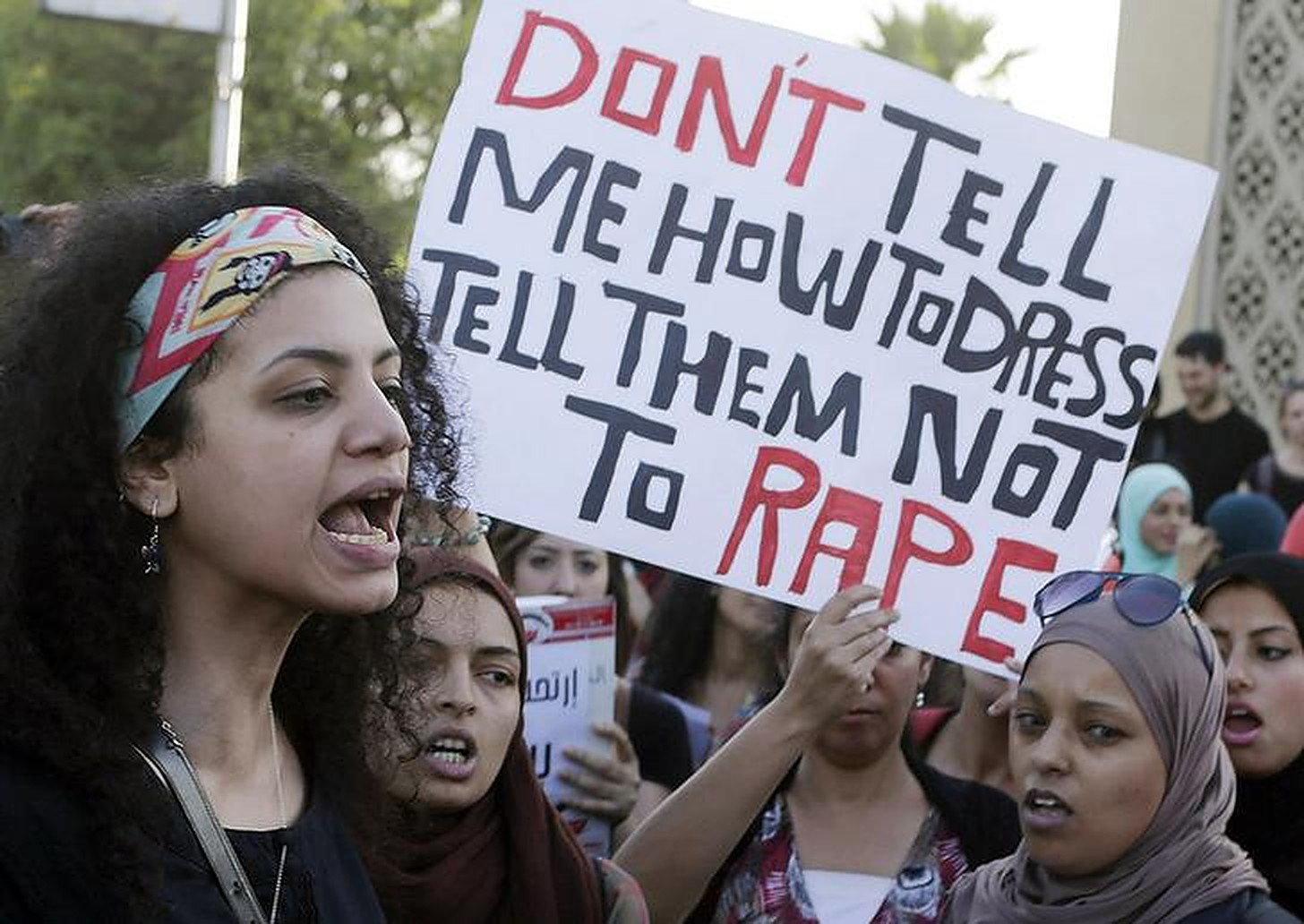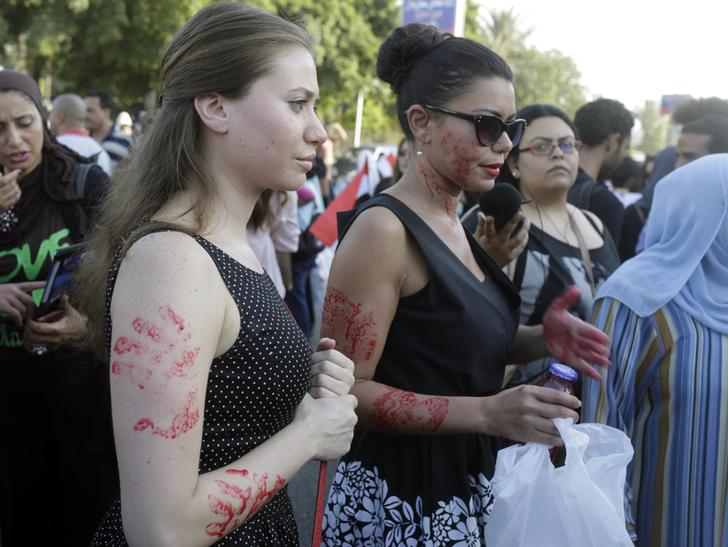
The rise of social media in recent years has given unprecedented visibility to people from all walks of life, with a myriad topics shaping up countless conversations taking place at any given moment.
In Egypt and across the MENA region, these platforms have contributed to the rise of the Arab Spring protests. Now, they are fueling another social movement to end gender-based discrimination and encourage women to speak up about all forms of sexual violence and abuse.
One initiative aimed at harnessing the power of social media and digital chatter is DARE. Developed by Dina Issa and her husband Amr Khairy, the app aims to combat sexual harassment and abuse by exposing abusers, relying on user-generated content to create a database about predators.
The couple started working on the app last July, at the height of Egypt’s #MeToo revival with high profile sexual abuse cases like the allegations against Ahmed Bassam Zaki and the Fairmont incident dominating the country’s media narrative. With plans to one day expand the app’s availability to the rest of the Middle East and North Africa region, the couple regard DARE as an immediate response to the dire situation in Egypt regarding sexual violence.
“Revealing the identity of a harasser and exposing [them] on a wide scale amongst family members and friends will drive a change in behavior and a [decrease] in incidents,” a representative for the tech startup tells Egyptian Streets.
The app, launched last month, is intended for women to report incidents of sexual abuse in real time and, if possible, document them using video footage or any other visual medium. DARE then automatically logs the time and the location of the incident to warn nearby users. These reports are then grouped in one main feed available to all users.
In order to add another layer of safety, the app is exclusively accessible to women and users can only sign up through Facebook, which offers some degree of identity verification. Additionally, users are all kept anonymous, which creators believe makes DARE a safe space, as well as a secure one.
“Sometimes, victims do not report incidents publicly, fearing [retaliation] or being tracked down on social media, hence why all posts on DARE have been made anonymous to encourage users to publish freely,” the source says, adding that user data is also protected. “There is no data to be hacked as the user’s identity is anonymous for all DARE users, plus accessing the application is via Facebook only, which will encourage users to publish freely without worrying about any consequences.”
The app’s functionality doesn’t end there. In addition to automatically posting women’s anonymous testimonials and reports about incidents of sexual abuse to the main feed, DARE also allows users to inaccurate or malicious reports. The app also allows users to rate predators based on the severity of their crimes.
And although the app’s creators are hoping to wield the power of social sanctioning in order to effect change, they maintain that victims of sexual abuse and harassment should report incidents to the authorities when and if they can. Through DARE, however, women can reclaim the narrative.
“It is difficult to report every incident that occurs [to the police], especially in our busy lives. Even if it happens, we don’t believe it will stop the harasser from repeating his act given that he wasn’t exposed on a large scale. Technology is the fastest, easiest, most powerful, and most durable [compared to] other long, complex [processes],” the representative argues.
Initiatives like DARE play a vital role in propagating a culture of believing women and holding men accountable, as opposed to the current paradigm, which firmly places the blame on the victim no matter the circumstances.
The concept of using social sanctioning as a tool to correct unacceptable behavior is not a new one. However, in a country like Egypt, where rape culture is deeply ingrained in the traditions and norms surrounding gender, women’s rights groups are struggling to raise awareness about sexual violence. The creators believe that this tide is turning.
“With today’s technological advancement, the largest and most powerful government agencies, companies, and private establishments are responding to the voices of social media users to solve [any] problem [to avoid backlash]. The power of social media should not be underestimated,” the representative remarks. “Exposing the harasser amongst family and friends will always be his greatest punishment. According to what we read, crime specialists explained that exposing harassers is one of the most successful methods.”







Comments (4)
[…] The Power of Social Sanctioning: The Egyptian App Exposing Sexual Abusers […]
[…] The Power of Social Sanctioning: The Egyptian App Exposing Sexual Abusers […]